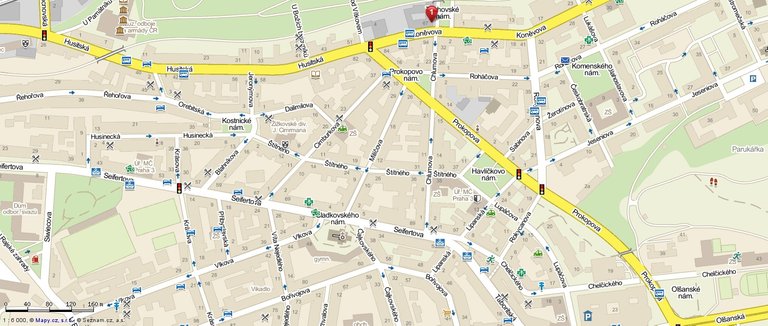
In the 1860s, the flourishing of industry began in the Austro-Hungarian Empire, which did not bypass Prague. Karlin and Smichov became the main industrial districts in Prague that had lost its fortress status. The workers who came to local factories settled in the neighboring village (then not yet annexed to Prague) - Zizkov. And the nascent Prague middle class (lawyers, doctors, civil servants) began to enter the neighboring settlement - Vinohrady. 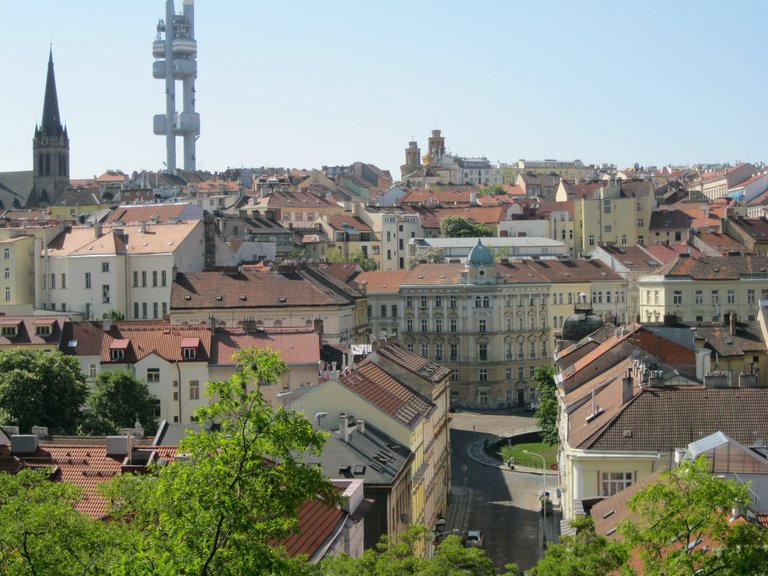
The difference in the architecture of the two districts is noticeable to the naked eye: proletarian multi-families, with courtyards-wells of Zizkov and pompous, stately houses of Vinohrady, replaced the grapes growing here everywhere earlier. The starting point for the emergence of Zizkov, in its modern form, was the division in 1865, of the lands of the Pražačka settlement (the area, still called) into plots. The eastern suburb of Prague, located along the road to Vienna, underwent a significant transformation in the second half of the 19th century: from an agricultural settlement with fields and vineyards to the center of industry, entrepreneurship and building of houses of wealthy Prague citizens. 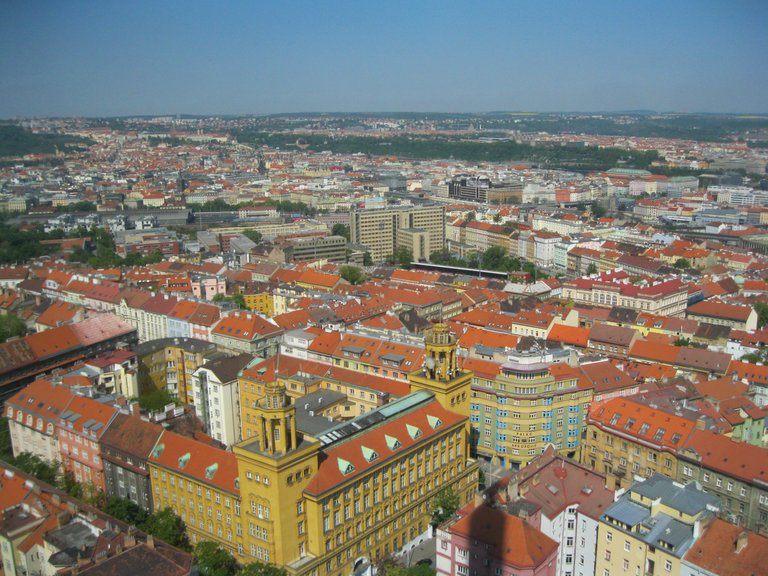
The aforementioned vast suburb was called “Vinohrady”, and its northern part was usually called “on the Viennese road”, however, initiative local businessmen in 1868 proposed to name this part of Zizkov, which was fixed in 1869. And already in 1875, the entire vast area "Royal Vinohrady" was divided into two independent districts - "Royal Vinohrady I" and "Royal Vinohrady II". 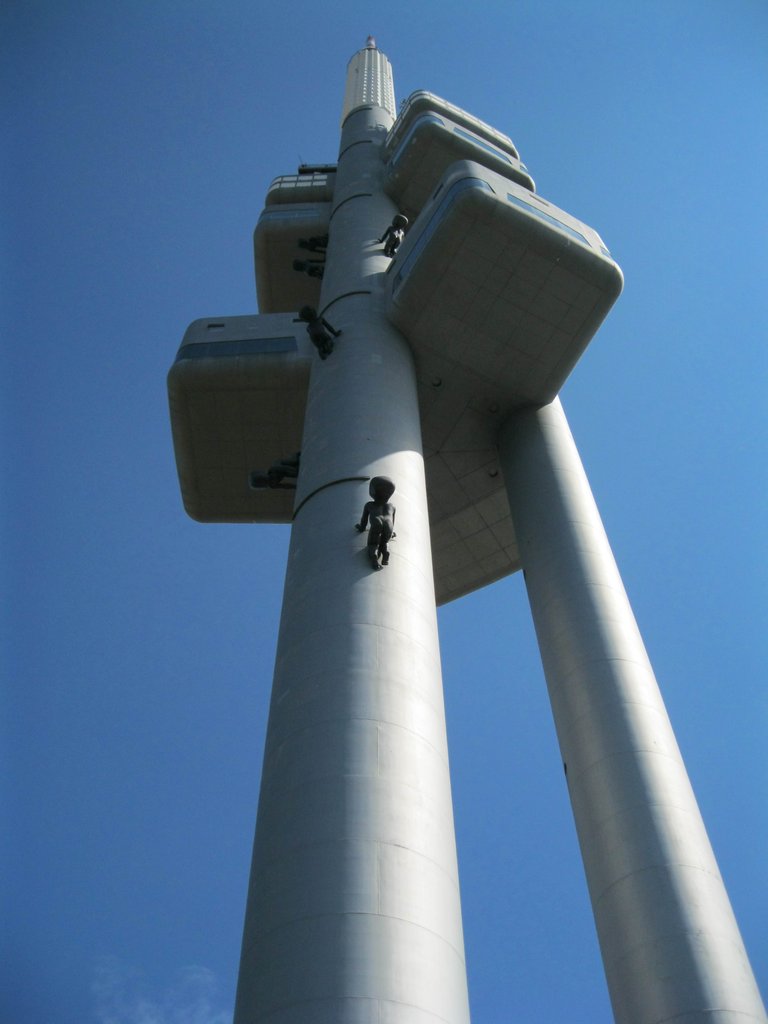
The Royal Vinohrady I district became the basis of Zizkov, and the restless energy of Zizkov entrepreneurs made it possible in 1881 to formalize the status of a settled settlement, having received a special decree from Emperor Franz Joseph. For almost forty years, the city of Zizkov was formed independently which left an imprint on its architecture, topography and population, and after joining Prague in 1922, it allowed to preserve the atmosphere of the last century. Until now, the spirit of Prague of past centuries soars in Zizkov, when grapes grew on the towering hill Parukarka, a cartridge factory was located near it, Jaroslav Hasek drank future royalties in local pubs, and Gustav Meyrink and Karel Capek wandered on the steep slopes of Zizkov Streets. 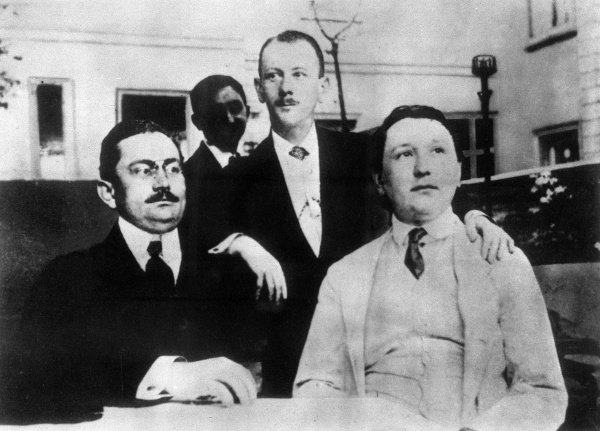
It was on Zizkov that the Nobel laureate in literature Jaroslav Seifert was born and spent his youth. The unique history of the region and the immense creative energy have turned Zizkov into a unique fusion of bohems and the proletariat, which has formed Zizkov beer culture. With this material, I begin a series of publications with recommendations for beer pubs, which are a must-see in Prague's Zizkov district.
| Posted in HIVEUA | Join Team Ukraine Social Media | Vote Our Witness |
|---|---|---|
 Join the community! Join the community! |  Telegram Chat - Twitter Telegram Chat - Twitter |  ️ VOTE ️ ️ VOTE ️ |
Source
Plagiarism is the copying & pasting of others work without giving credit to the original author or artist. Plagiarized posts are considered fraud and violate the intellectual property rights of the original creator.
Fraud is discouraged by the community and may result in the account being Blacklisted.
If you believe this comment is in error, please contact us in #appeals in Discord.
Congratulations @beertourism! You have completed the following achievement on the Hive blockchain and have been rewarded with new badge(s) :
You can view your badges on your board And compare to others on the Ranking
If you no longer want to receive notifications, reply to this comment with the word
STOPDo not miss the last post from @hivebuzz:
Support the HiveBuzz project. Vote for our proposal!